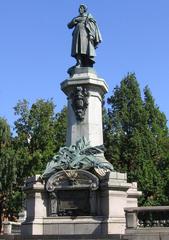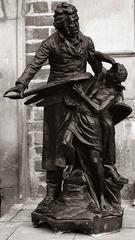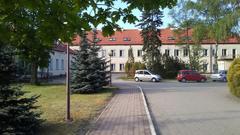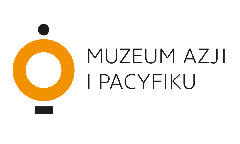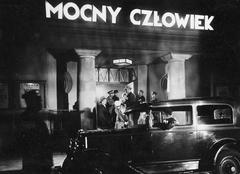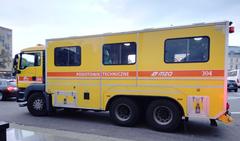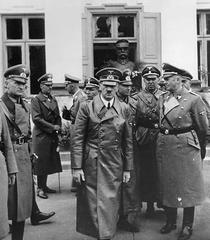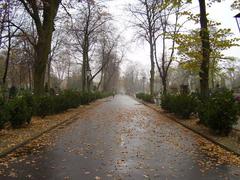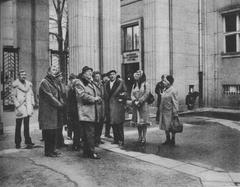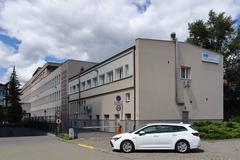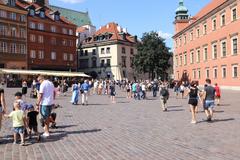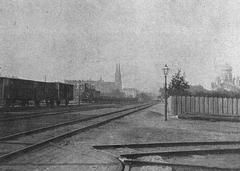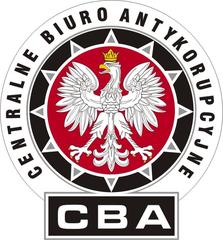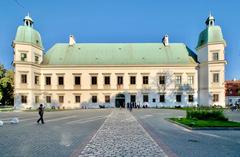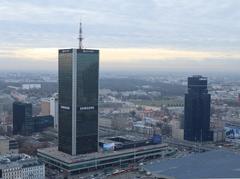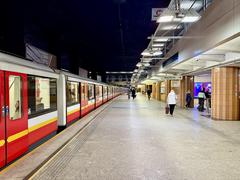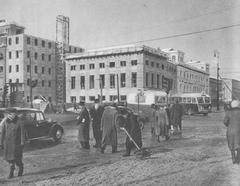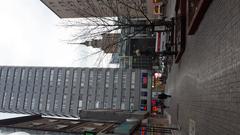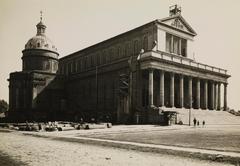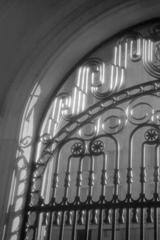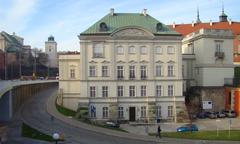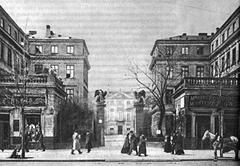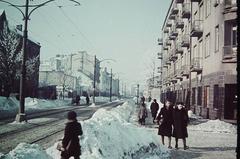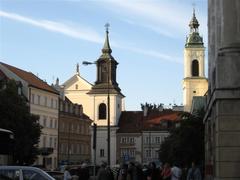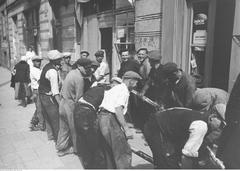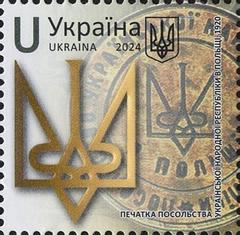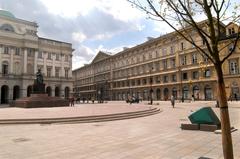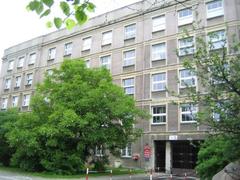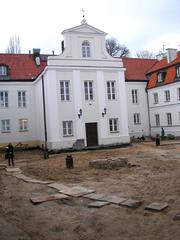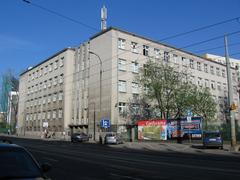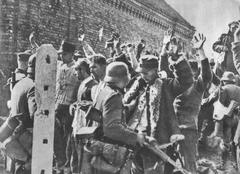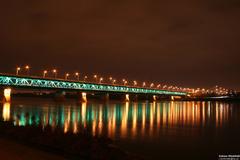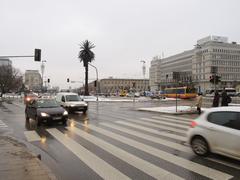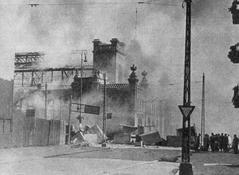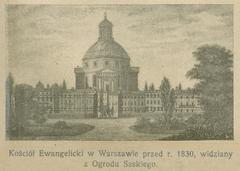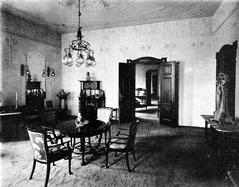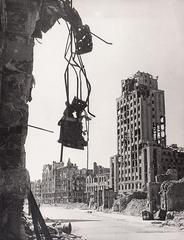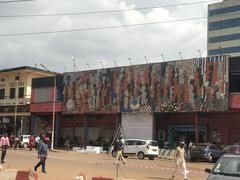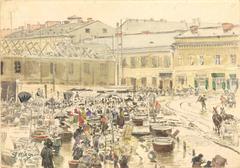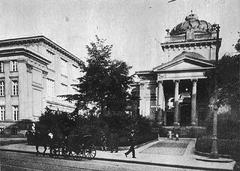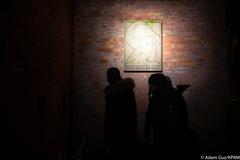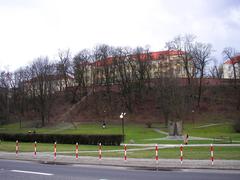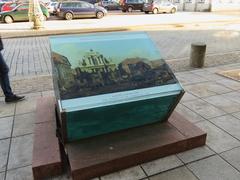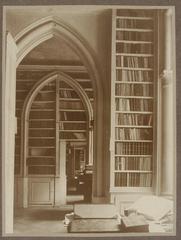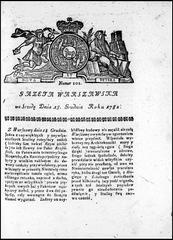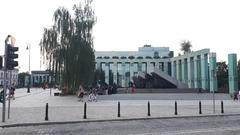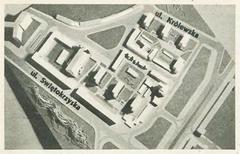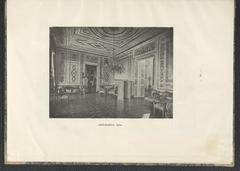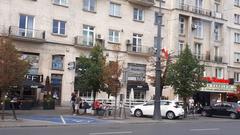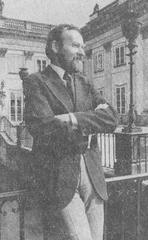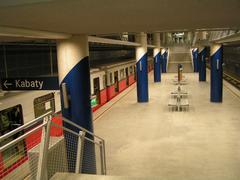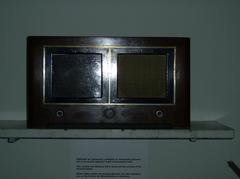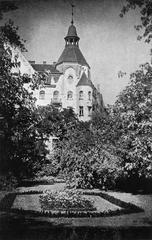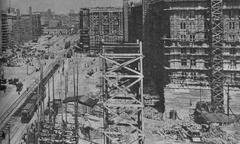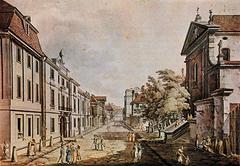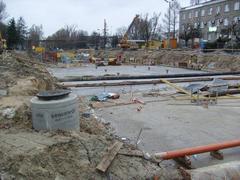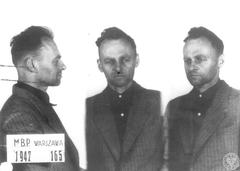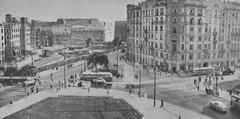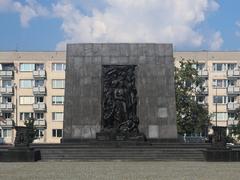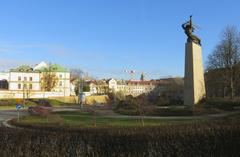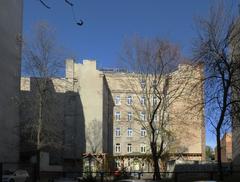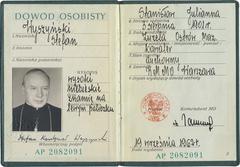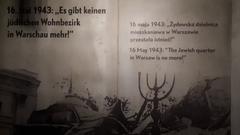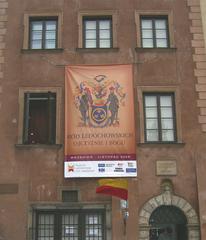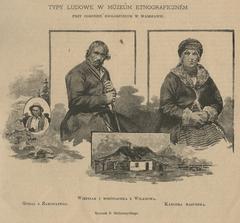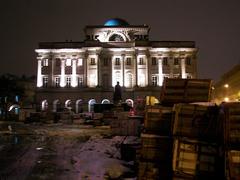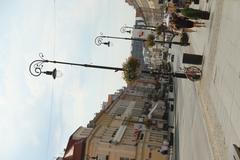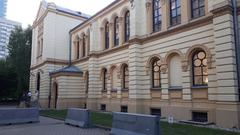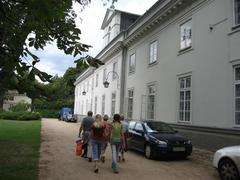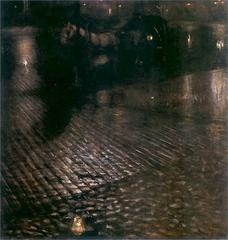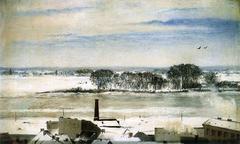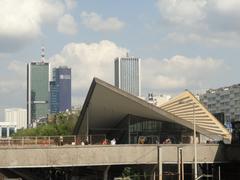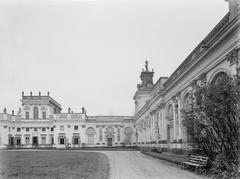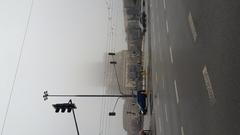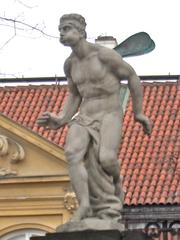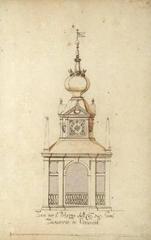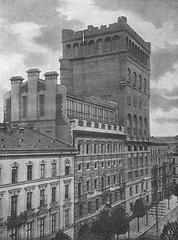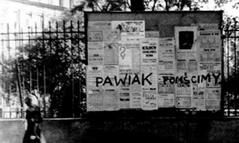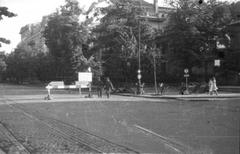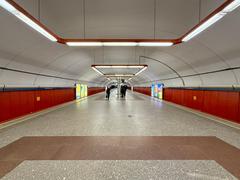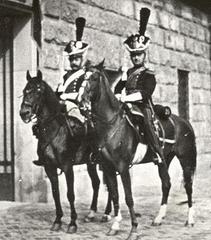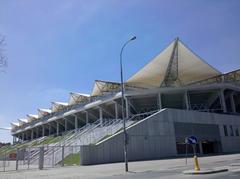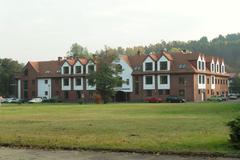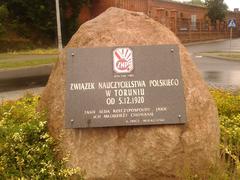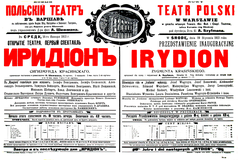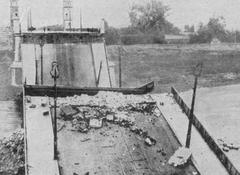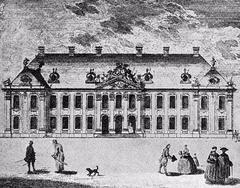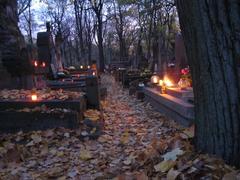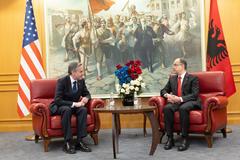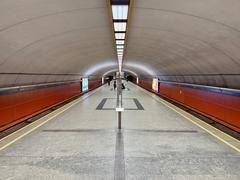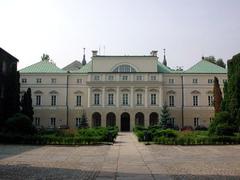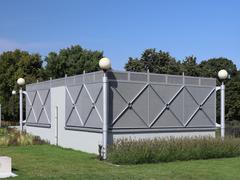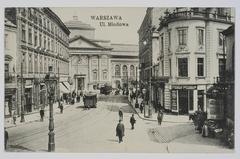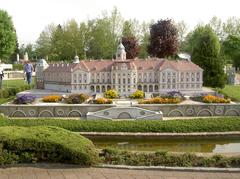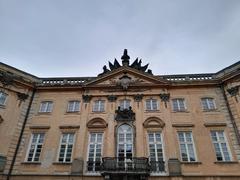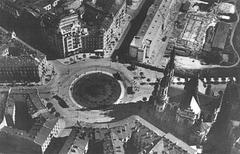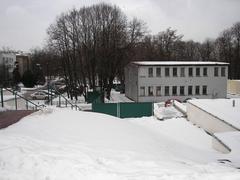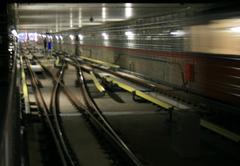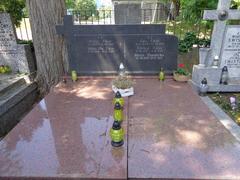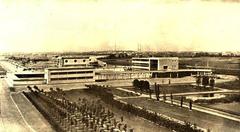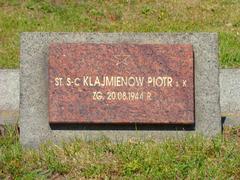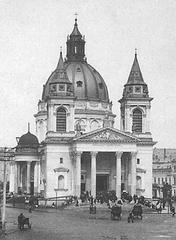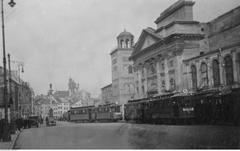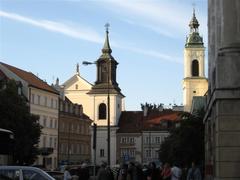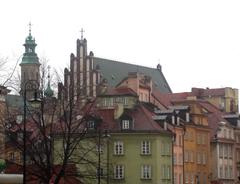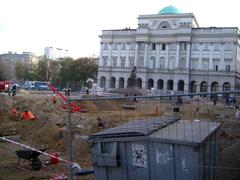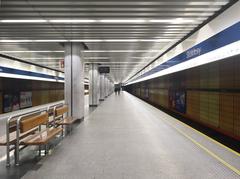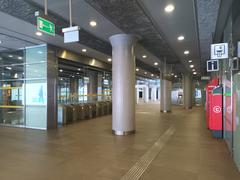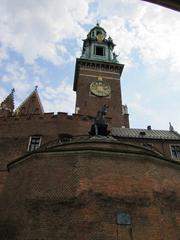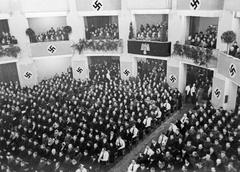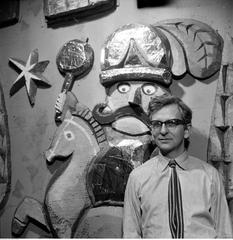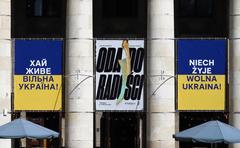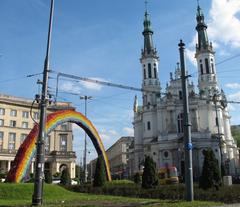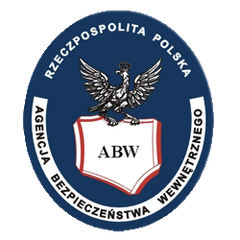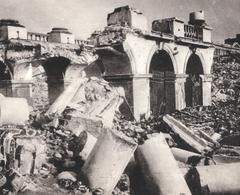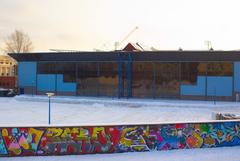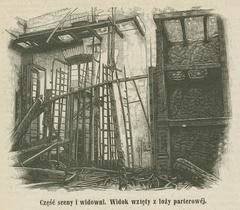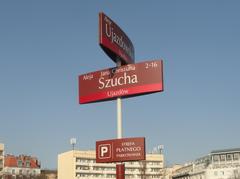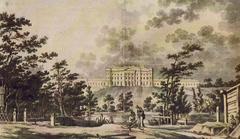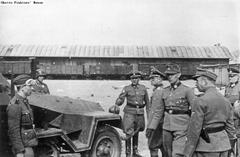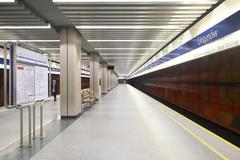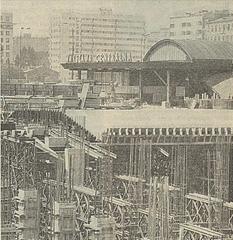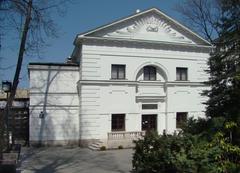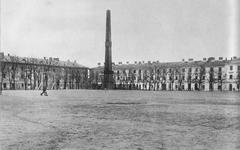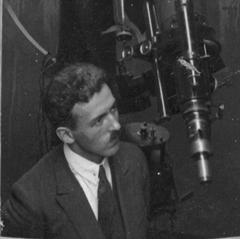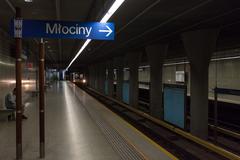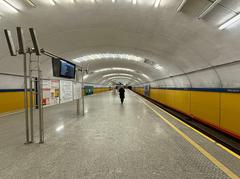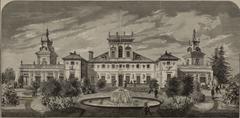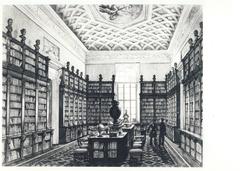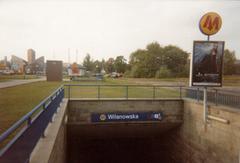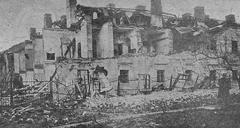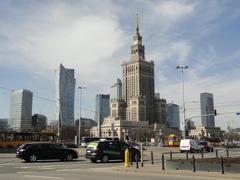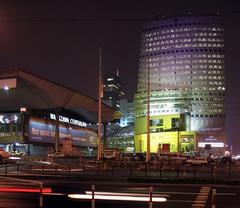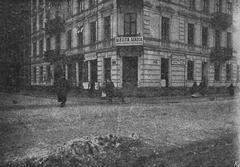Visiting the Constitutional Tribunal of the Republic of Poland: Warsaw Guide
Date: 14/06/2025
Introduction
The Constitutional Tribunal of the Republic of Poland (Trybunał Konstytucyjny), centrally located in Warsaw, stands as a cornerstone of the Polish legal system and a symbol of constitutional order. Established in the mid-1980s and strengthened following the country’s transition to democracy in 1989, the Tribunal is entrusted with safeguarding the Constitution and ensuring the rule of law. Its modernist building, positioned amid Warsaw’s government district, not only serves a vital judicial function but also represents the resilience and independence of Poland’s legal institutions.
This comprehensive guide offers historical context, practical visitor information—including hours, admission, and accessibility—and tips for exploring nearby cultural sites. Whether you are a legal scholar, history enthusiast, or traveler, a visit to the Tribunal enriches your understanding of Poland’s democratic journey. For the latest updates, always refer to the official Constitutional Tribunal website. Additional background can be found in resources such as the Venice Commission Opinion and the HFHR report.
Table of Contents
- Introduction
- Historical Overview
- The Tribunal Building: Architecture and Location
- Visiting Information
- Visitor FAQ
- Summary and Tips
- References
Historical Overview
Establishment and Early Development
The Constitutional Tribunal was established in 1985, beginning its operations the following year. Initially, its powers were limited, but after the pivotal events of 1989 and the adoption of the 1997 Constitution, the Tribunal emerged as a key judicial body. Its mandate includes reviewing the constitutionality of laws, scrutinizing international agreements, and resolving disputes among state authorities (Refworld).
Role and Jurisdiction
The Tribunal’s primary function is to ensure that statutes, regulations, and international agreements comply with the Polish Constitution. It adjudicates constitutional complaints submitted by individuals and institutions, and resolves jurisdictional disputes between state bodies. These responsibilities are fundamental to upholding the rule of law and protecting citizens’ constitutional rights (HFHR).
Key Moments and Controversies
In recent history, the Tribunal was at the forefront of a constitutional crisis (2015–2016), with disputes over judicial appointments and legislative reforms raising concerns about judicial independence (Venice Commission Opinion). Its 2021 ruling asserting the primacy of the Polish Constitution over certain provisions of EU law drew both national and international attention, underscoring its enduring significance in Poland’s legal and political discourse.
The Tribunal Building: Architecture and Location
The Tribunal resides at al. Szucha 12a, in Warsaw’s Śródmieście district, surrounded by key government institutions and embassies (Culture Treasures). The building exemplifies modernist architecture, characterized by functional lines and a dignified presence. Its location makes it an accessible and notable stop for those interested in Poland’s political and architectural history.

Visiting Information
Visiting Hours
- General Public: Open Monday to Friday, 9:00 AM–4:00 PM. Always verify current hours and any special closures on the official website.
- Court Hearings: Public attendance at hearings is possible, but access is subject to the schedule and security protocols.
Tickets and Guided Tours
- Admission: Free of charge.
- Guided Tours: Occasionally available for educational groups, requiring advance arrangement via the Tribunal’s contact office. Individual tourists should inquire ahead as regular tours are not standard.
Accessibility
- The building is fully accessible, featuring ramps, elevators, and adapted facilities for visitors with disabilities. For specific needs, contact visitor services in advance.
Getting There
- Address: al. Szucha 12a, 00-918 Warsaw, Poland.
- By Metro: Politechnika station (Line M1) is a 10-minute walk away.
- By Tram/Bus: Multiple lines serve the area; consult Warsaw Public Transport for the best route.
- By Car: Limited street parking; public transport is strongly recommended due to traffic and parking regulations.
Nearby Attractions
Combine your visit with these notable sites:
- Łazienki Park: Historic gardens and palaces nearby.
- Ujazdowski Castle: A contemporary art center within walking distance.
- Warsaw Old Town: UNESCO World Heritage site accessible by public transport.
- Royal Castle & Museum of Warsaw: Major cultural highlights in the city center.
Visitor FAQ
Do I need a ticket to visit?
No, entry is free. Public hearings require prior registration.
What are the visiting hours?
Monday–Friday, 9:00 AM–4:00 PM. Check for updates on the official site.
Can I attend Tribunal hearings?
Yes, but you must register in advance and present valid ID. Hearings are subject to security checks and may have limited space.
Is the Tribunal accessible for visitors with disabilities?
Yes; the building is equipped for accessibility.
Are tours available?
Educational group tours can be arranged in advance. Individual guided tours are not routinely offered.
Is photography allowed?
Exterior photography is permitted. Inside, photography and recording are generally prohibited except where expressly allowed.
What language are proceedings in?
Hearings are conducted in Polish; translation is not typically available.
Summary and Visitor Tips
- Plan Ahead: Register in advance for hearings or group tours.
- Dress Appropriately: Business or smart-casual attire is recommended for courtroom visits.
- Bring ID: Required for entry to hearings.
- Respect Protocol: Silence is expected; photography and recording are restricted inside.
- Accessibility: Facilities for visitors with disabilities are available—contact in advance for assistance.
- Combine Attractions: The Tribunal’s location makes it ideal to visit alongside other Warsaw landmarks.
For up-to-date information, consult the Constitutional Tribunal website and reputable travel resources such as Warsaw Visit – City Guide and Nomadic Matt’s Warsaw Travel Guide.
References
- Official Constitutional Tribunal Website
- The Constitutional Crisis in Poland 2015-2016, HFHR
- Venice Commission Opinion, Council of Europe
- Refworld: 1985 Establishment of the Constitutional Tribunal
- Culture Treasures Warsaw Guide
- Warsaw Public Transport
- Warsaw Visit – City Guide
- Nomadic Matt’s Warsaw Travel Guide
For more on Warsaw’s legal and historical landmarks, download the Audiala app and follow us on social media for travel updates.


